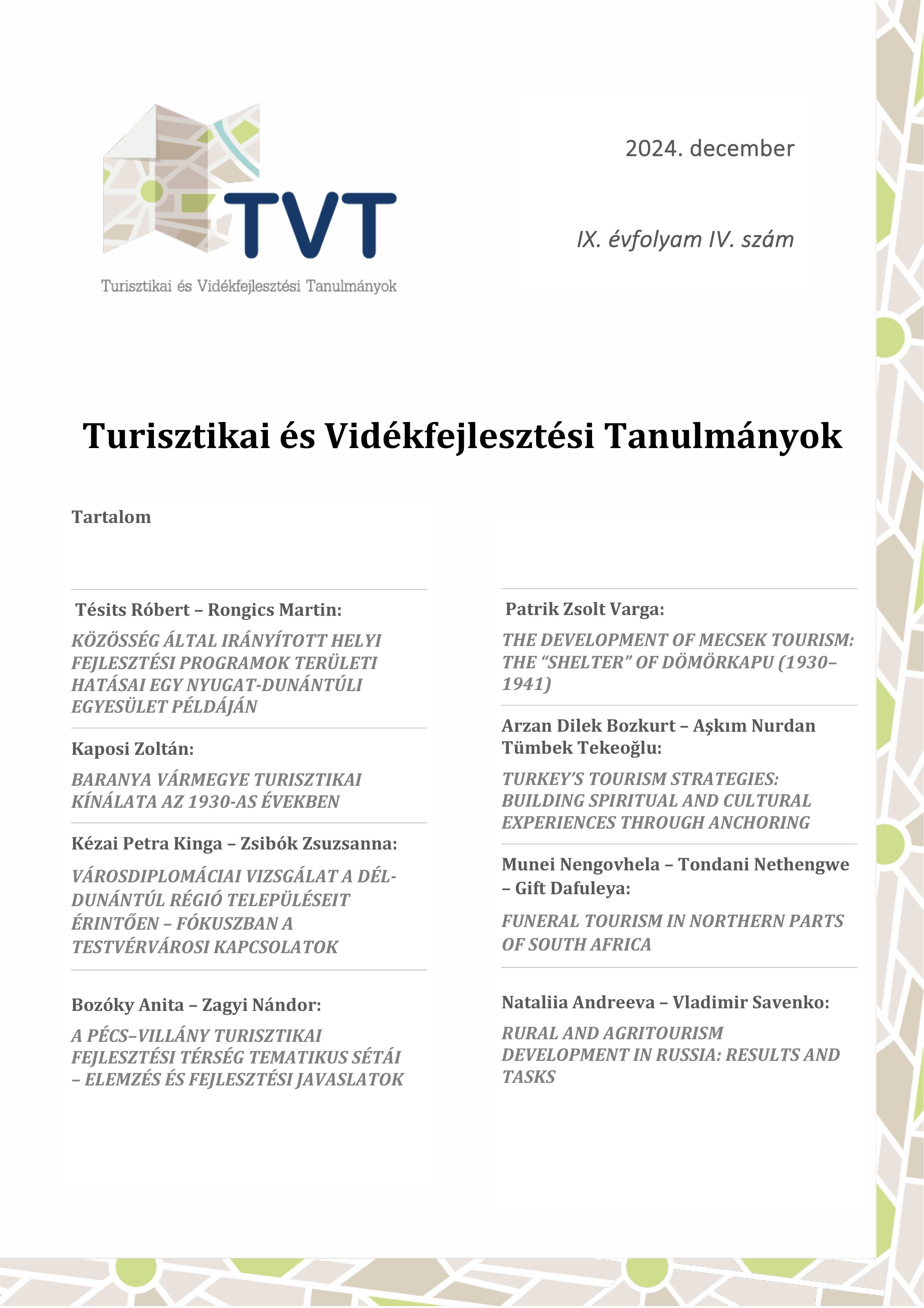Közösség által irányított helyi fejlesztési programok területi hatásai egy nyugat-dunántúli egyesület példáján
DOI:
https://doi.org/10.15170/TVT.2024.09.04.01Kulcsszavak:
CLLD, EU, Magyarország, területfejlesztés, vidékfejlesztésAbsztrakt
Az elmúlt évtizedekben mind uniós, mind hazai szinten kiemelt figyelem irányult a vidéki térségek fejlesztésére, melynek egyik sikeres iránya a LEADER/CLLD-alapú megközelítés. A Nyugat-Dunántúlon, a győri agglomerációba ékelődve a Pannónia Kincse Leader Egyesület látja el a kapcsolódó fejlesztési feladatokat. A jelen tanulmány általános célja a 2014 és 2020 közötti pályázati időszak eredményességének vizsgálata, az akciócsoport kapcsolatrendszerének felmérése, valamint a vizsgált időszak során bekövetkezett változások értékelése. A kutatás módszertani bázisát az akcióterületen működő vállalkozások által kitöltött kérdőívek adják, amelyeket az egyesület vezetőivel készített interjúk egészítettek ki. Az eredmények rávilágítanak, hogy a program sikeressége jelentős mértékben függ az egyes települések pályázási hajlandóságától, amely a jövőben várhatóan növekedni fog. A CLLD-megközelítés és a területi fejlődés hatékonyságát tovább fokozhatja a partnerségi hálózatok erősítése és a térségi kapcsolatok bővítése.


